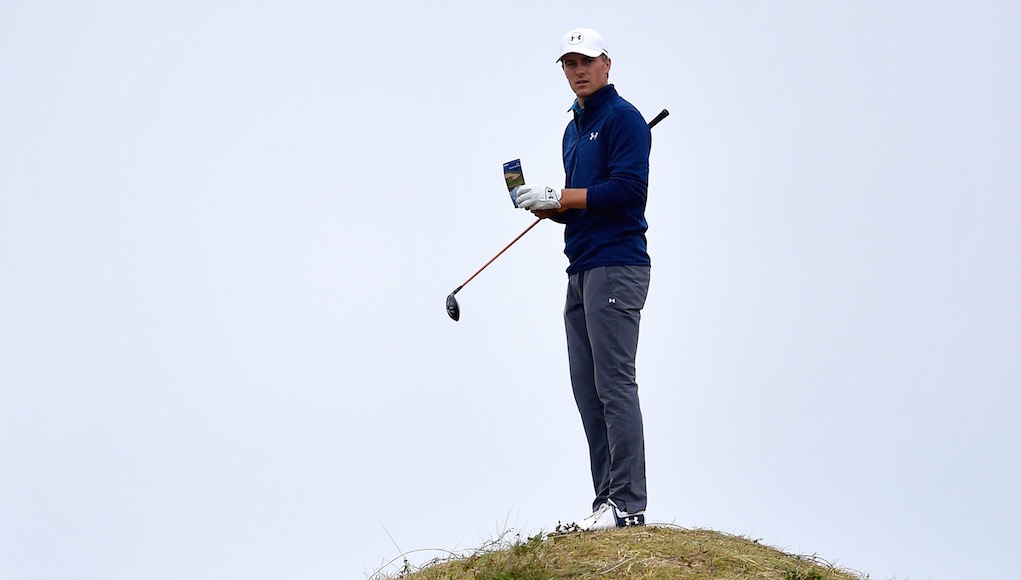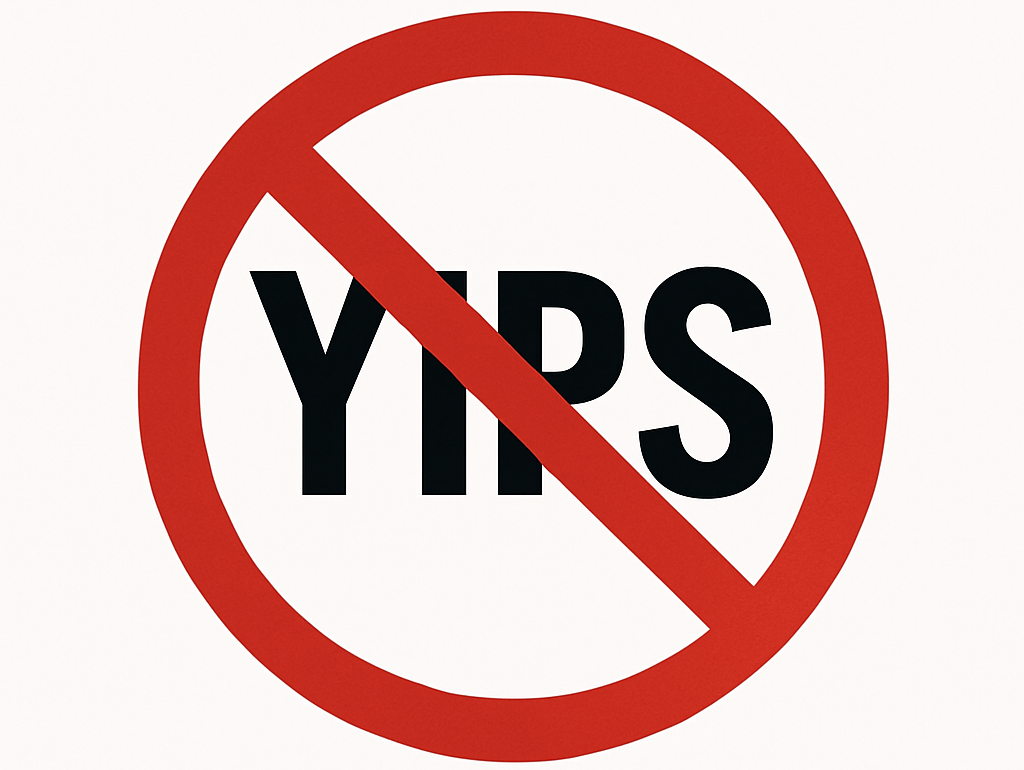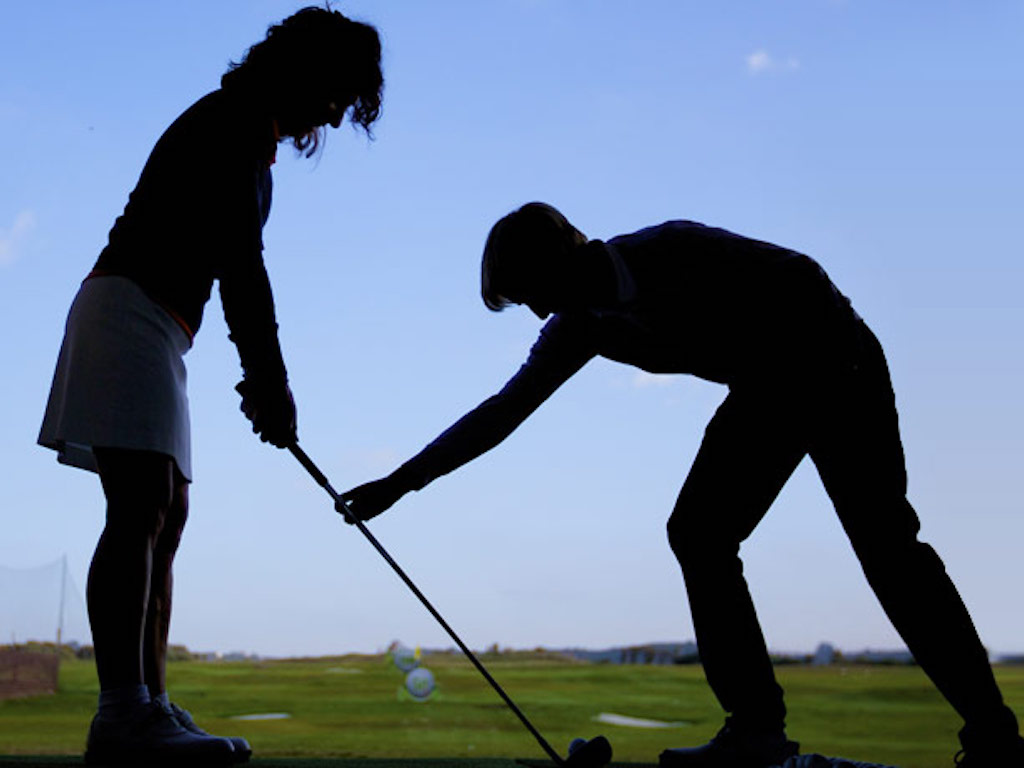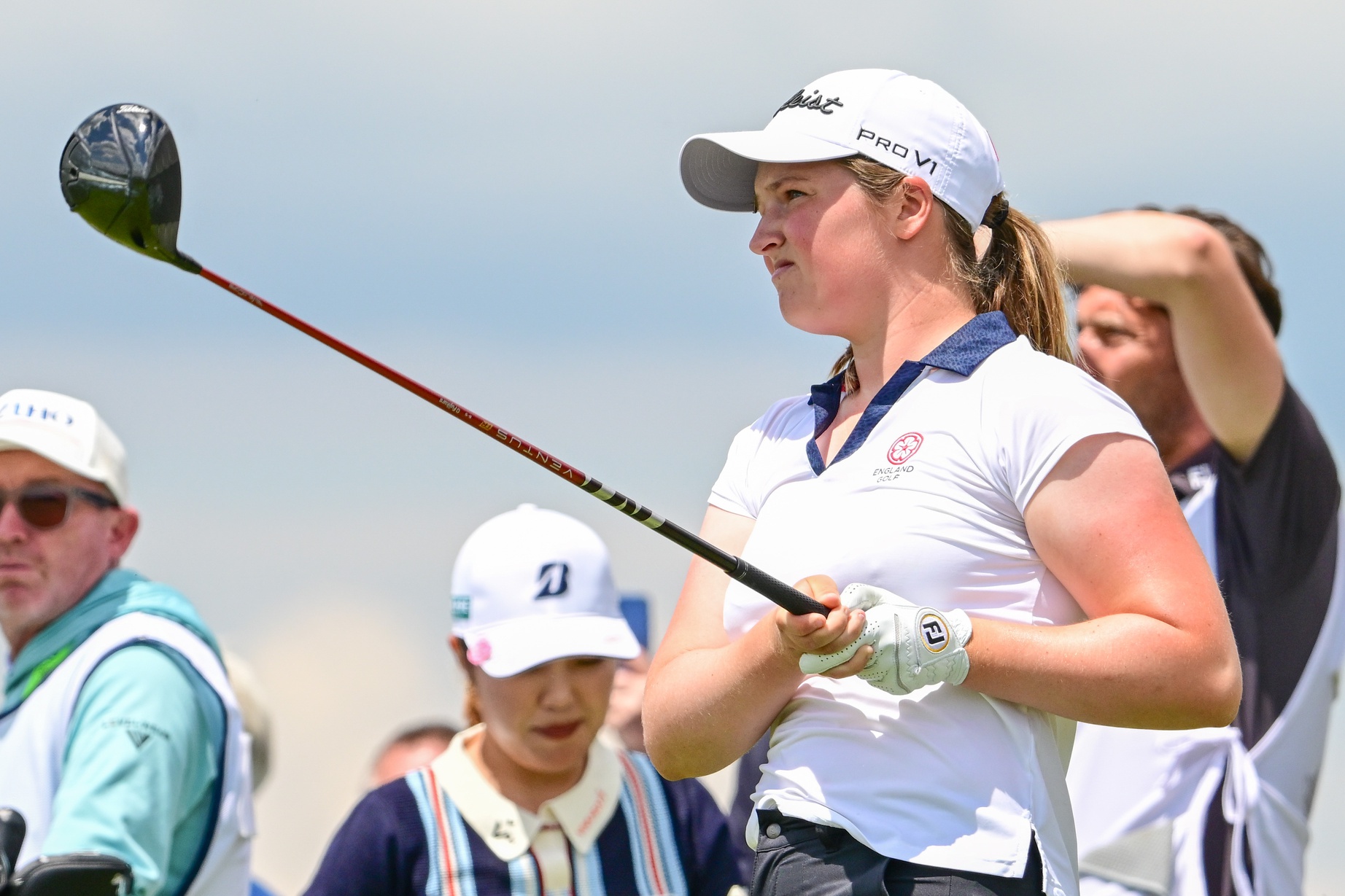Instruction
How to improve your mental and emotional strength on the golf course

About 6 months ago, a young, aspiring golfer was referred to me. He was just turning pro and having a difficult time making the transition from amateur to professional golf. The primary problem was he didn’t have some of the key fundamentals and skills to move forward and develop as a player. He was struggling with the transition and the day-to-day responsibilities of a professional golfer, and he did not have the tools to maximize his capabilities: the achievement factor. So, no fun and no results.
With the pressures of professional golf, financial burdens and expectations, he was considering quitting and starting something new… or being proactive and doing something about it. Fast forward 6 months. A mental/emotional development process helped him develop the critical skills he needed to both achieve his targets, put him on the right path, bring a great attitude to the game, and enjoy his golf.
From the Player’s Dad: “This has been the difference. Adding some structure in his mental game was the key to bring it together and put things on the right track. He is confident, has a real plan, and he’s excited to continue the journey with new skills.”
Why Mental/Emotional High Performance Should Be Important to You
Working in high-performance sports everyday, I see the emerging trend to put more emphasis on the mental and emotional game as the golf industry approaches limits in technical, physical, and equipment advancement. The next frontiers are in proactive mental/emotional development and the fuel factor, maximizing the value of nutrition.
Forward-thinking modern players like Jordan Spieth understand the importance of mental/emotional performance development. Listen to any of his interviews and you’ll hear consistent references to all key areas of mental/emotional performance. The Champion Golfer of the Year said it well after winning The Open in July:
“You have to conquer the golf course first and foremost,” Spieth said. “You also have to conquer yourself, your own emotions, you have to win the mental battle with yourself.”
As the physical gap between players continually closes, golfers will need a stronger mental and emotional framework. “The edge” will be found in the mental/emotional component and other key areas like nutrition.
There are many benefits to developing your mental/emotional game. Here are a just a few benefits that you might not have considered:
1. Build self-awareness. Working with the world’s leading athletes everyday, one of the critical keys to sustainable high performance is the competency of self-awareness. When we assess athletes at all levels, results show that eight out of 10 performers do not have an adequate level of self-awareness to be a high performer. It therefore must be developed for a golfer to maximize his or her abilities. Development of self-awareness through golf will also enable high performance in other areas of your life.
2. Build confidence. What is confidence? How do you build it? How do you keep it? A great mental/emotional development plan will ensure you understand confidence and you bring it with you every time you step on the course.
3. Develop a clear path forward. A detailed, concise player plan is required, including a vision for your golf career and a plan in place to reach your targets. Most players have no plan, no fundamental structure, no defined path to reach targets. For that reason, most get lost along the way and don’t reach targets.
4. Become aware of your emotion. Human beings are emotional. Often your emotions direct you and pull you in a variety of directions. Awareness and regulation of emotions is a key element in mental/emotional high performance development. With development, emotions can be channeled in the right direction and used to maximize enjoyment and achievement.
5. Build focus. We live in a world of distraction: phones, social media, big events, expectations. In order to maximize abilities, a level of mindfulness must be developed to center the focus on what’s important. Mental/emotional high performance development builds a new level of focus.
6. Enjoy the game! The ultimate result of the time you spend in golf is you enjoy yourself and have fun. Many players lose perspective of the primary reasons for playing and get caught up in traps that don’t allow them to fully enjoy the sport they love.
So what are you waiting for?
There are golfers all over the world who have technical and physical talent, but they never reach their targets or gain full enjoyment from the sport. Be like proactive players on the PGA Tour who embrace the value of mental and emotional development, building their mental and emotional muscles to both have more fun and achieve more.
Instruction
The Wedge Guy: Beating the yips into submission

There may be no more painful affliction in golf than the “yips” – those uncontrollable and maddening little nervous twitches that prevent you from making a decent stroke on short putts. If you’ve never had them, consider yourself very fortunate (or possibly just very young). But I can assure you that when your most treacherous and feared golf shot is not the 195 yard approach over water with a quartering headwind…not the extra tight fairway with water left and sand right…not the soft bunker shot to a downhill pin with water on the other side…No, when your most feared shot is the remaining 2- 4-foot putt after hitting a great approach, recovery or lag putt, it makes the game almost painful.
And I’ve been fighting the yips (again) for a while now. It’s a recurring nightmare that has haunted me most of my adult life. I even had the yips when I was in my 20s, but I’ve beat them into submission off and on most of my adult life. But just recently, that nasty virus came to life once again. My lag putting has been very good, but when I get over one of those “you should make this” length putts, the entire nervous system seems to go haywire. I make great practice strokes, and then the most pitiful short-stroke or jab at the ball you can imagine. Sheesh.
But I’m a traditionalist, and do not look toward the long putter, belly putter, cross-hand, claw or other variation as the solution. My approach is to beat those damn yips into submission some other way. Here’s what I’m doing that is working pretty well, and I offer it to all of you who might have a similar affliction on the greens.
When you are over a short putt, forget the practice strokes…you want your natural eye-hand coordination to be unhindered by mechanics. Address your putt and take a good look at the hole, and back to the putter to ensure good alignment. Lighten your right hand grip on the putter and make sure that only the fingertips are in contact with the grip, to prevent you from getting to tight.
Then, take a long, long look at the hole to fill your entire mind and senses with the target. When you bring your head/eyes back to the ball, try to make a smooth, immediate move right into your backstroke — not even a second pause — and then let your hands and putter track right back together right back to where you were looking — the HOLE! Seeing the putter make contact with the ball, preferably even the forward edge of the ball – the side near the hole.
For me, this is working, but I am asking all of you to chime in with your own “home remedies” for the most aggravating and senseless of all golf maladies. It never hurts to have more to fall back on!
Instruction
Looking for a good golf instructor? Use this checklist

Over the last couple of decades, golf has become much more science-based. We measure swing speed, smash factor, angle of attack, strokes gained, and many other metrics that can really help golfers improve. But I often wonder if the advancement of golf’s “hard” sciences comes at the expense of the “soft” sciences.
Take, for example, golf instruction. Good golf instruction requires understanding swing mechanics and ball flight. But let’s take that as a given for PGA instructors. The other factors that make an instructor effective can be evaluated by social science, rather than launch monitors.
If you are a recreational golfer looking for a golf instructor, here are my top three points to consider.
1. Cultural mindset
What is “cultural mindset? To social scientists, it means whether a culture of genius or a culture of learning exists. In a golf instruction context, that may mean whether the teacher communicates a message that golf ability is something innate (you either have it or you don’t), or whether golf ability is something that can be learned. You want the latter!
It may sound obvious to suggest that you find a golf instructor who thinks you can improve, but my research suggests that it isn’t a given. In a large sample study of golf instructors, I found that when it came to recreational golfers, there was a wide range of belief systems. Some instructors strongly believed recreational golfers could improve through lessons. while others strongly believed they could not. And those beliefs manifested in the instructor’s feedback given to a student and the culture created for players.
2. Coping and self-modeling can beat role-modeling
Swing analysis technology is often preloaded with swings of PGA and LPGA Tour players. The swings of elite players are intended to be used for comparative purposes with golfers taking lessons. What social science tells us is that for novice and non-expert golfers, comparing swings to tour professionals can have the opposite effect of that intended. If you fit into the novice or non-expert category of golfer, you will learn more and be more motivated to change if you see yourself making a ‘better’ swing (self-modeling) or seeing your swing compared to a similar other (a coping model). Stay away from instructors who want to compare your swing with that of a tour player.
3. Learning theory basics
It is not a sexy selling point, but learning is a process, and that process is incremental – particularly for recreational adult players. Social science helps us understand this element of golf instruction. A good instructor will take learning slowly. He or she will give you just about enough information that challenges you, but is still manageable. The artful instructor will take time to decide what that one or two learning points are before jumping in to make full-scale swing changes. If the instructor moves too fast, you will probably leave the lesson with an arm’s length of swing thoughts and not really know which to focus on.
As an instructor, I develop a priority list of changes I want to make in a player’s technique. We then patiently and gradually work through that list. Beware of instructors who give you more than you can chew.
So if you are in the market for golf instruction, I encourage you to look beyond the X’s and O’s to find the right match!
Instruction
What Lottie Woad’s stunning debut win teaches every golfer

Most pros take months, even years, to win their first tournament. Lottie Woad needed exactly four days.
The 21-year-old from Surrey shot 21-under 267 at Dundonald Links to win the ISPS Handa Women’s Scottish Open by three shots — in her very first event as a professional. She’s only the third player in LPGA history to accomplish this feat, joining Rose Zhang (2023) and Beverly Hanson (1951).
But here’s what caught my attention as a coach: Woad didn’t win through miraculous putting or bombing 300-yard drives. She won through relentless precision and unshakeable composure. After watching her performance unfold, I’m convinced every golfer — from weekend warriors to scratch players — can steal pages from her playbook.
Precision Beats Power (And It’s Not Even Close)
Forget the driving contests. Woad proved that finding greens matters more than finding distance.
What Woad did:
• Hit it straight, hit it solid, give yourself chances
• Aimed for the fat parts of greens instead of chasing pins
• Let her putting do the talking after hitting safe targets
• As she said, “Everyone was chasing me today, and managed to maintain the lead and played really nicely down the stretch and hit a lot of good shots”
Why most golfers mess this up:
• They see a pin tucked behind a bunker and grab one more club to “go right at it”
• Distance becomes more important than accuracy
• They try to be heroic instead of smart
ACTION ITEM: For your next 10 rounds, aim for the center of every green regardless of pin position. Track your greens in regulation and watch your scores drop before your swing changes.
The Putter That Stayed Cool Under Fire
Woad started the final round two shots clear and immediately applied pressure with birdies at the 2nd and 3rd holes. When South Korea’s Hyo Joo Kim mounted a charge and reached 20-under with a birdie at the 14th, Woad didn’t panic.
How she responded to pressure:
• Fired back with consecutive birdies at the 13th and 14th
• Watched Kim stumble with back-to-back bogeys
• Capped it with her fifth birdie of the day at the par-5 18th
• Stayed patient when others pressed, pressed when others cracked
What amateurs do wrong:
• Get conservative when they should be aggressive
• Try to force magic when steady play would win
• Panic when someone else makes a move
ACTION ITEM: Practice your 3-6 foot putts for 15 minutes after every range session. Woad’s putting wasn’t spectacular—it was reliable. Make the putts you should make.
Course Management 101: Play Your Game, Not the Course’s Game
Woad admitted she couldn’t see many scoreboards during the final round, but it didn’t matter. She stuck to her game plan regardless of what others were doing.
Her mental approach:
• Focused on her process, not the competition
• Drew on past pressure situations (Augusta National Women’s Amateur win)
• As she said, “That was the biggest tournament I played in at the time and was kind of my big win. So definitely felt the pressure of it more there, and I felt like all those experiences helped me with this”
Her physical execution:
• 270-yard drives (nothing flashy)
• Methodical iron play
• Steady putting
• Everything effective, nothing spectacular
ACTION ITEM: Create a yardage book for your home course. Know your distances to every pin, every hazard, every landing area. Stick to your plan no matter what your playing partners are doing.
Mental Toughness Isn’t Born, It’s Built
The most impressive part of Woad’s win? She genuinely didn’t expect it: “I definitely wasn’t expecting to win my first event as a pro, but I knew I was playing well, and I was hoping to contend.”
Her winning mindset:
• Didn’t put winning pressure on herself
• Focused on playing well and contending
• Made winning a byproduct of a good process
• Built confidence through recent experiences:
- Won the Women’s Irish Open as an amateur
- Missed a playoff by one shot at the Evian Championship
- Each experience prepared her for the next
What this means for you:
• Stop trying to shoot career rounds every time you tee up
• Focus on executing your pre-shot routine
• Commit to every shot
• Stay present in the moment
ACTION ITEM: Before each round, set process goals instead of score goals. Example: “I will take three practice swings before every shot” or “I will pick a specific target for every shot.” Let your score be the result, not the focus.
The Real Lesson
Woad collected $300,000 for her first professional victory, but the real prize was proving that fundamentals still work at golf’s highest level. She didn’t reinvent the game — she simply executed the basics better than everyone else that week.
The fundamentals that won:
• Hit more fairways
• Find more greens
• Make the putts you should make
• Stay patient under pressure
That’s something every golfer can do, regardless of handicap. Lottie Woad just showed us it’s still the winning formula.
FINAL ACTION ITEM: Pick one of the four action items above and commit to it for the next month. Master one fundamental before moving to the next. That’s how champions are built.
PGA Professional Brendon Elliott is an award-winning coach and golf writer. You can check out his writing work and learn more about him by visiting BEAGOLFER.golf and OneMoreRollGolf.com. Also, check out “The Starter” on RG.org each Monday.
Editor’s note: Brendon shares his nearly 30 years of experience in the game with GolfWRX readers through his ongoing tip series. He looks forward to providing valuable insights and advice to help golfers improve their game. Stay tuned for more Tips!











Vegas Bullet Dodger
Oct 5, 2017 at 5:36 pm
Got to say SteveK is on to something….
Look at the nba
Demar
Oct 5, 2017 at 7:35 pm
Very low IQ multi-millionaires…. laughing at the tribal honking cracker fans paying to watch and fantasize about jumping and scoring and big donging.
Vegas Bullet Dodger
Oct 5, 2017 at 5:31 pm
Bring something to eat and stay hydrated
Dude
Oct 4, 2017 at 9:21 pm
This was covered in the movie, Happy Gilmore. Spoiler Alert:
Chubby takes Happy to the miniature golf course so that he can find his “happy” place. As a result, Happy was able to overcome the untimely passing of Chubbs, the fact that his Grandma’s house was being taken away, and win the tour championship.
Think or Thwim
Oct 5, 2017 at 11:55 am
Hey, Dude ….. LOLOLOLOLOL
OB
Oct 5, 2017 at 4:08 pm
Look at this face and tell me he’s got a high IQ!
http://www.golfwrx.com/472472/rory-mcilroy-rightfully-holds-a-grudge-against-former-manchester-united-midfielder/
Vegas Bullet Dodger
Oct 5, 2017 at 5:33 pm
He looks like he’s in Austin Powers
Think or Thwim
Oct 6, 2017 at 5:37 pm
He looks neanderthal
John Haime
Oct 4, 2017 at 5:49 pm
Hi Jake – “how” is a process and individual for everyone. For example – to acquire self-awareness – many pieces need to be looked at – strengths, limitations, triggers, values, purpose etc. This article is a first step to create awareness – you have options to get customized “hows”. Thanks for the great comment!
SteveK
Oct 5, 2017 at 12:52 am
How about my cogent comment? Why do top amateur and pro golfers have an emotional/mental deficiency after playing golf starting from the tender ages of 4-6 y.o.? Is it a parental problem that haunts these emotionally/mentally challenged athletes? Surely you must determine the root causes before you can prescribe a remedy.
John Haime
Oct 5, 2017 at 8:06 am
Hi Steve,
Re – you first comment. When I see “people who play golf for a living have a low IQ” – I stop reading and won’t take time for statements with no basis of fact and are insulting to professional golfers.
In your second question – you are pointing out the entire problem. Almost everyone is reactive – waiting for things to break before “fixing” it. The solution is a proactive approach to develop the mental/emotional skills in the first place – just like you might develop the basic fundamentals of the golf swing. And yes, if the athlete does not have these fundamentals, then they are open to issues and getting in their own way – and the root cause is the starting point. Thanks!
Steve K
Oct 5, 2017 at 11:13 am
IQ tests are a test of broad intellectual capacity and most professional athletes do not have a high IQ because the game of golf and most other sports does not require such intellect.
Athletes are specialized people who function athletically and intellectually in their particular sport. They don’t require a high IQ and the point I was making that their mental and emotional development is stunted by a lower intellectual level.
Nothing wrong with that observation…. and you have taken my statement out of context where I say “… it’s a masochistic endeavor requiring an obsessive-compulsive mentality and a huge commitment to solo practice.”
Golfers are no great minds as with most top athletes. They only live for their sport. Of course there are some exceptions that I am not aware of. In general they are fine people with a specialized brain power that may not include mental and emotional strength. “IQ” and “EQ” (Emotional Quotient). That’s a likely ‘root cause’ of the problem.
Don’t let political correctness blind you to the ‘root’ causes of psychological problems in top immature athletes.
SteveK
Oct 4, 2017 at 11:21 am
Improving mental and emotional strength is in essence a maturation process. Children have low mental strength and emotional control because they are creatures of instinct and feeelings. They grow out of their childish mentality by the age of 40!
People who play golf for a living are probably low IQ (85-90) people because golf is not intellectually challenging…. it’s a masochistic endeavor requiring an obsessive-compulsive mentality and a huge commitment to solo practice.
Sure, golf is a specialization and pro golfers have reached the top of the specialization physically. Was it Bobby Jones who said that golf is played within the 5 1/2 inches between the ears? Some pro golfers do mature and they play with great mental and emotional strength. Most don’t.
As for recreational golfers, they are simply children seeking fun on the golf course with their incompetence and equally incompetent buddies. Geerheads are an example of the immaturity of golfers who revel in the artistic shapes and subjective feel of new model golf clubs. The OEMs know how to market their toys to customers with weak mental and emotional conditions.
There is a child within every adult male… and I believe somebody wrote a pop-psychology book on that topic.
SteveKisadummy
Oct 4, 2017 at 3:45 pm
Congratulations on writing the dumbest comment of the year. 10 months into the rear and we have a runaway winner. I had though I had seen it all but you have shot as low as possible and hit a bulls eye. You are a true meatball.
SteveK
Oct 5, 2017 at 12:46 am
And you fall into the category of 85 – 90 IQ and it’s obvious my comments cause you much personal anguish … and I am a much smarter ‘meatball’.
Steve K
Oct 5, 2017 at 11:06 am
No, my comments are cogent and valid, and they explain the cause of low mental and emotional strength in top athletes … people who don’t need a high IQ to function at a high athletic level.
Not only is their IQ generally low, their “EQ” Emotional Quotient is low. Athletes live for their sport and themselves as performers. This is well known in psychological circles.
Stop with your political correctness that protects the feelings of those on this ‘safe space’ WITB forum.
Jake
Oct 4, 2017 at 10:47 am
Where is the how? This is what you need to do. How to do those things is missing.
Think or Thwim
Oct 5, 2017 at 12:00 pm
If you recognize your mental and emotional problems playing golf visit a professional sports psychologist, not somebody who claims to be competent to diagnose problems that may have their roots in a medical condition. e.g. hormonal imbalance.